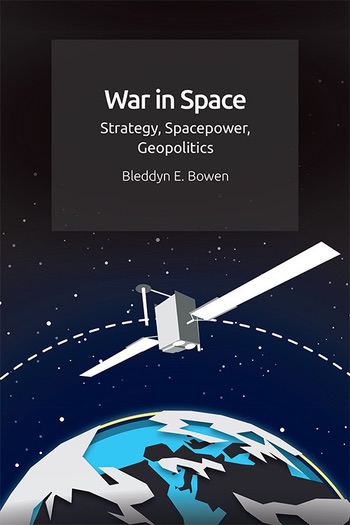Review: War in Spaceby Jeff Foust
|
| “Earth orbit is a cosmic coastline suited for strategic manoeuvres,” states Bowen. |
What spacepower literature that has been published over the years has relied heavily on maritime analogies, and Bowen is no different. However, he uses a different approach, eschewing the “bluewater” approaches of fleets and sea lanes. Instead, he argues a better naval analogy for spacepower is the “continental” model, where naval activities take place close to shore where they influence, and can be influenced by, events on land. “Continental seapower, with its emphasis on where seapower meets land-based strategies and powers, has enabled a more in-depth theorisation of the interaction between Earth and space to a degree that bluewater seapower theory cannot match due to its imperial bluewater heritage,” he writes.
Bowen discusses in the book seven propositions underlying his continental model for spacepower, which are intended to link space activities, including military ones, with terrestrial activities. “Spacepower is uniquely infrastructural and connected to Earth,” he states in one of them, while in another dismisses the argument that the nation that controls space controls the Earth.
“Earth orbit is a cosmic coastline suited for strategic manoeuvres,” states another of his propositions, which perhaps best encapsulates that continental model he promotes. For all the talk from other theorists about activities on the Moon or elsewhere in the solar system, including accessing resources and creating settlements, spaceflight today is about what’s going on in Earth orbit and how it influences other military and political actions on Earth—and vice versa.
The book doesn’t suggest specific strategies for the United States or other nations to pursue in space to implement this model of spacepower, beyond a discussion near the end of the book of a hypothetical US-China conflict involving Taiwan, but instead offers a broad view of how spacepower interacts with other aspects of geopolitics. It’s an academic book (as one might surmise from the price) intended for those who study space policy or international relations; Bowen argues in the book that international relations scholars need to pay more attention to the importance of spacepower on geopolitics. For now, the issue of war in space is still hypothetical, but as space become more important to more nations, conflict in Earth orbit of some kind becomes increasingly likely.
Note: we are temporarily moderating all comments submitted to deal with a surge in spam.
